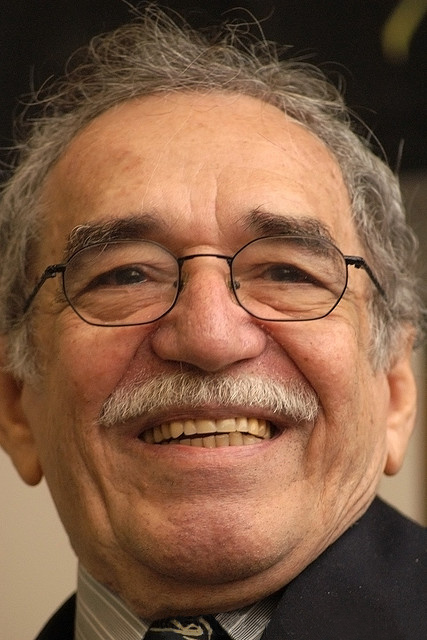Gabriel García Márquez najznámejšie citáty
Gabriel García Márquez Citáty o živote
Gabriel García Márquez Citáty o láske
Gabriel García Márquez citáty a výroky
Gabriel García Márquez: Citáty v angličtine
“A person does not belong to a place until there is someone dead under the ground.”
Zdroj: One Hundred Years of Solitude
“As I kissed her the heat of her body increased, and it exhaled a wild, untamed fragrance.”
Zdroj: Memories of My Melancholy Whores
“The weak would never enter the kingdom of love.”
Zdroj: Love in the Time of Cholera
“I always had understood that dying of love was mere poetic license.”
Zdroj: Memories of My Melancholy Whores
“Today, when I saw you, I realized that what is between us is nothing more than an illusion.”
Zdroj: Love in the Time of Cholera
“Tell him,' the colonel said, smiling, 'that a person doesn’t die when he should but when he can.”
Varianta: A person doesn't die when he should but when he can.
Zdroj: One Hundred Years of Solitude (1967), p. 241, said by Colonel Aureliano Buendía
“One never quite stops believing, some doubt remains forever".”
Zdroj: Of Love and Other Demons
“Ah, me, if this is love, then how it torments.”
Zdroj: Memories of My Melancholy Whores
“… the invincible power that has moved the world is unrequited, not happy love”
Varianta: I became aware that the invincible power that has moved the world is unrequited, not happy, love.
Zdroj: Memories of My Melancholy Whores
“Love is not a condition of the spirit but a sign of the zodiac.”
Zdroj: Memories of My Melancholy Whores
“There had never been a death so foretold.”
Zdroj: Crónica de una muerte anunciada
“The first of the
line is tied to a tree and the last is being eaten by the ants.”
Zdroj: One Hundred Years of Solitude
Nobel lecture (8 December 1982) http://www.themodernword.com/gabo/gabo_nobel.html
Varianta: races condemned to 100 years of solitude did not have a second opportunity on earth.
Zdroj: One Hundred Years of Solitude
Kontext: The most prosperous countries have succeeded in accumulating powers of destruction such as to annihilate, a hundred times over, not only all the human beings that have existed to this day, but also the totality of all living beings that have ever drawn breath on this planet of misfortune.
On a day like today, my master William Faulkner said, "I decline to accept the end of man." I would fall unworthy of standing in this place that was his, if I were not fully aware that the colossal tragedy he refused to recognize thirty-two years ago is now, for the first time since the beginning of humanity, nothing more than a simple scientific possiblity. Faced with this awesome reality that must have seemed a mere utopia through all of human time, we, the inventors of tales, who will believe anything, feel entitled to believe that it is not yet too late to engage in the creation of the opposite utopia. A new and sweeping utopia of life, where no one will be able to decide for others how they die, where love will prove true and happiness be possible, and where the races condemned to one hundred years of solitude will have, at last and forever, a second opportunity on earth.
Zdroj: Conversations with Gabriel García Márquez
